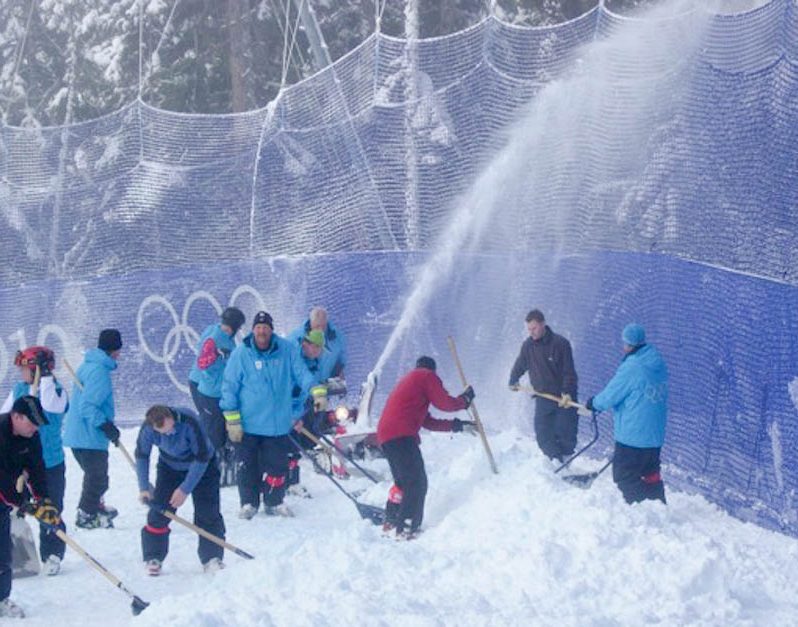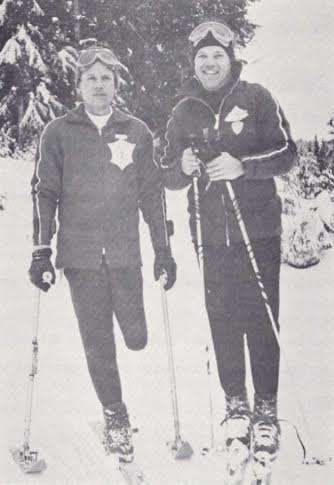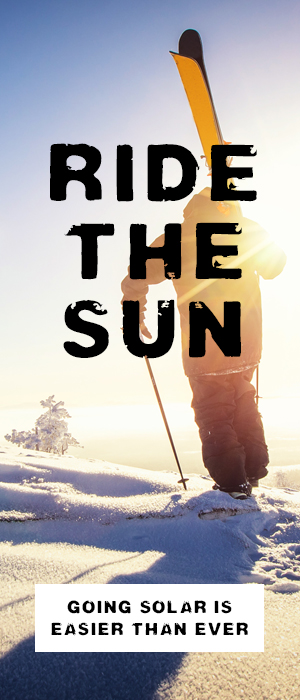26-year Mt. Hood Ski Patrol veteran Steve Eversmeyer and his wife Annie have traveled to Sochi, Russia to work the alpine racing events of the 2014 Paralympic Games.
Eversmeyer, who served as president of the Mt. Hood Ski Patrol from 2011 to 2013, first worked as an alpine race course volunteer in Salt Lake City in 2002. He has worked a dozen or so major events since then, using vacation time from his day job as a safety and loss control manager for the Port of Portland to travel to major races and help keep the courses safe and fair.
He says he enjoys the hard work and camaraderie of working with teams of volunteers to make an inherently dangerous event as safe and routine as possible. “It’s a good group of people with a shared interest and a chance to meet folks from all over the world,” says Eversmeyer. “You’re always learning something new.”
Volunteers move around huge volumes of snow with rakes and shovels and snowblowers and set up carefully designed safety gate systems to slow down and protect racers who crash.
This photo from the 2010 Olympics shows Eversmeyer and other volunteers preparing a course for racing after a big snowstorm:
When the course gets rutted up or a racer knocks down a gate or a fence, Eversmeyer and other volunteers rush in like pit crews in a NASCAR race to fix the problem and then get the heck out of the way to let the next racer through. Medical teams are on standby at all times with helicopters ready to airlift injured racers to safety.
“A big part of the job is not getting flustered,” says Eversmeyer. “That and being flexible. You learn to be flexible pretty early on – or you don’t come back.”
Steve’s wife Annie first joined him in volunteering for the Winter Olympics and Paralympics in Whistler in 2010. The couple completed the necessary paperwork for Sochi last year, managed to find relatively inexpensive tickets to Sochi and arrived last week. They are staying at the Rhosa Khutor Alpine Center in a shared apartment and working with a worldwide community of about 25,000 volunteers to make the transition from the hype of the Winter Olympics to the accommodations of the Paralympics. Their first work day was February 26.
The Paralympics will run March 7-16 and will be televised in Russia and in the United States on NBC. Athletes with a variety of disabilities will compete in alpine skiing, snowboarding, cross country skiing, ice sledge hockey, wheelchair curling and biathlon.
Eversmeyer says the Paralympic alpine racers are “awe inspiring.” Paralympic alpine racers rip it at up to 70 miles per hour with prosthetic limbs, missing limbs, cerebral palsy and a variety of other disabilities. Blind and visually impaired racers use helmet communication systems and sighted guides to race the course without seeing it.
“It just blows my mind watching them come down the course and seeing how fast they go,” says Eversmeyer. “The are racing. It is no holds barred, take no prisoners. Those folks are out to win.”
Paralympic alpine races begin Saturday, March 8, with six events scheduled: Downhill, Super-G, Super Combined, Giant Slalom, Slalom and Snowboard Cross.
Take a look at this YouTube video about visually impaired alpine racing, and try to imagine yourself in their ski boots.
{jumi[visually-impaired-racing.txt]}
Last modified: March 1, 2014


